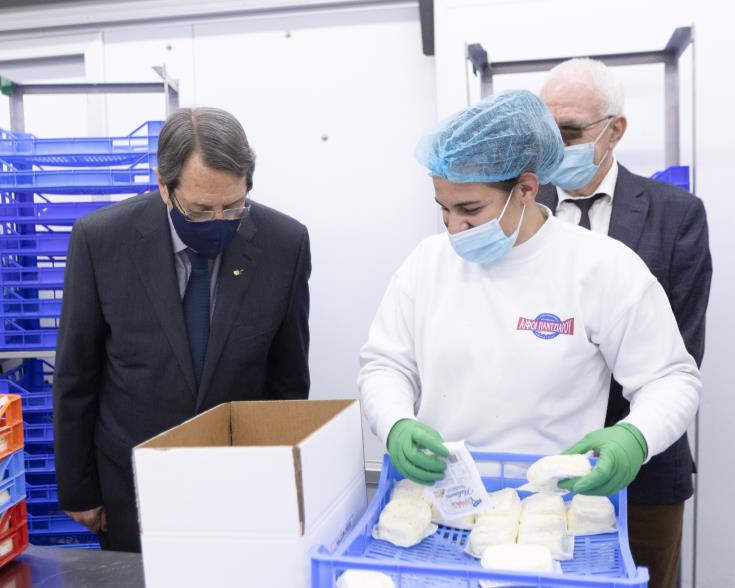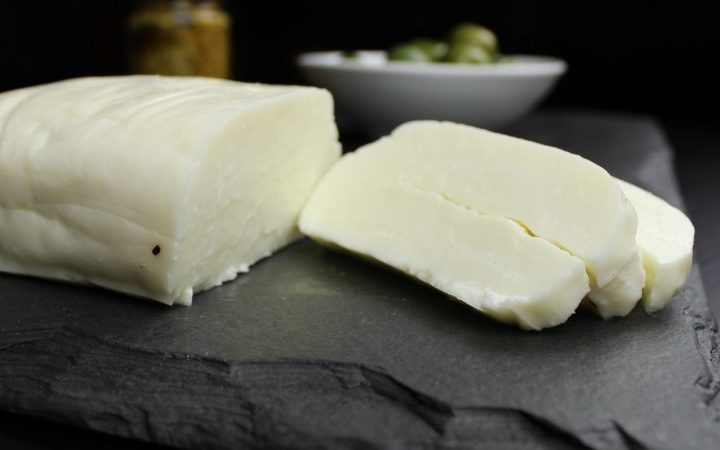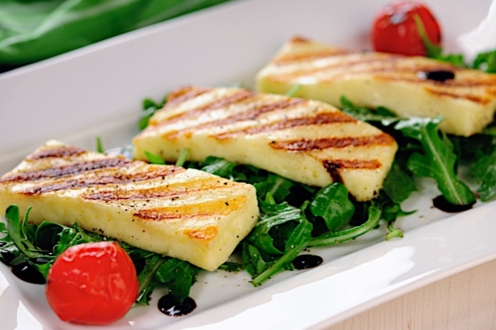Some 6,000 tonnes of halloumi, earmarked for export, are stored in refrigerators after the coronavirus pandemic saw the demand for Cyprus’ traditional cheese collapse.
Cheesemakers are asking authorities to step in to facilitate exports to third countries.
On Tuesday, the House Agriculture Committee heard the general secretary of the Cyprus Dairy Producers Association Andreas Andreou explain that dairy producers cannot export the 6,000 tonnes of the squeaky cheese to their regular clients.
Andreou told the Financial Mirror that exports have now picked up, their clients being provided with the latest products, leaving their refrigerated stocks stuck.
“The option of sending larger quantities to our regular customers in the EU would mean that we would have to bring down prices drastically, leading to a devaluation of the product,” he explained.
Furthermore, stocks produced before 1 October are not considered a product of protected designation of origin (PDO) and cannot carry the PDO stamp.
Cyprus’ request to have its traditional cheese registered as a PDO came into force on 1 October, with quantities produced not eligible for certification before that date.
This is perceived as a disadvantage for exports to EU countries.
To solve the issue, without bringing prices down, cheesemakers are asking authorities to step in and facilitate the export of the halloumi mountain to third countries with which producers do not have agreements.
Responding to dairy producers demands, Commerce Minister Natasa Pilides said her ministry is considering allowing non-PDO halloumi exported to third countries.
This means that dairy producers will be able to export halloumi products to the United Kingdom, which is the largest market for the island’s flagship export product.
The Foreign Ministry is also on board, taking on the initiative to talk to ambassadors of third countries to offload leftover halloumi quantities.
As reported, some Middle Eastern and Gulf countries have sent in a positive response.
PDO drive
Agriculture Minister Costas Kadis said following the official PDO registration of halloumi; the ministry is making sure the criteria are being met.
To date, 61 dairies have applied to be certified as halloumi producers according to the PDO criteria, of which 42 have received preliminary approval.
Kadis said the dairies given this preliminary approval produce more than 85% of Cyprus’ halloumi.
He said authorities would be negotiating with Brussels to alter the PDO file requirement that stipulates goat’s milk used in the mix should be from local goat tribes, fed with specific animal fodder.
However, 70% of Cyprus’s sheep and goat population are not native, as dairy producers have argued.
It has been a thorny issue for cheesemakers as the file foresees that goat’s milk should by 2024 exceed cow’s milk, reaching a minimum of 51%.
The Agriculture Ministry said it would be injecting some €30 mln in incentive schemes for breeders to boost sheep and goat milk production.
Cyprus’ flagship halloumi export had its best year in 2020, but demand has crumbled with lockdowns imposed across Europe to combat the second wave of coronavirus crippling the hospitality sector.
Last year ended with halloumi generating a whopping €260 mln from exports of 40,000 tonnes, yielding €115 mln from 17,000 tonnes sold to the UK importers.
That made 2020 the best year on record for halloumi exports.
With the UK being Cyprus’ biggest market for its traditional cheese, with 45% of exports heading for supermarket shelves and restaurants in Britain, cheesemakers place their bets on its vaccination program.










